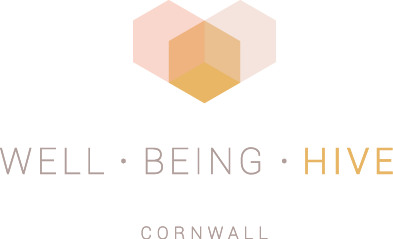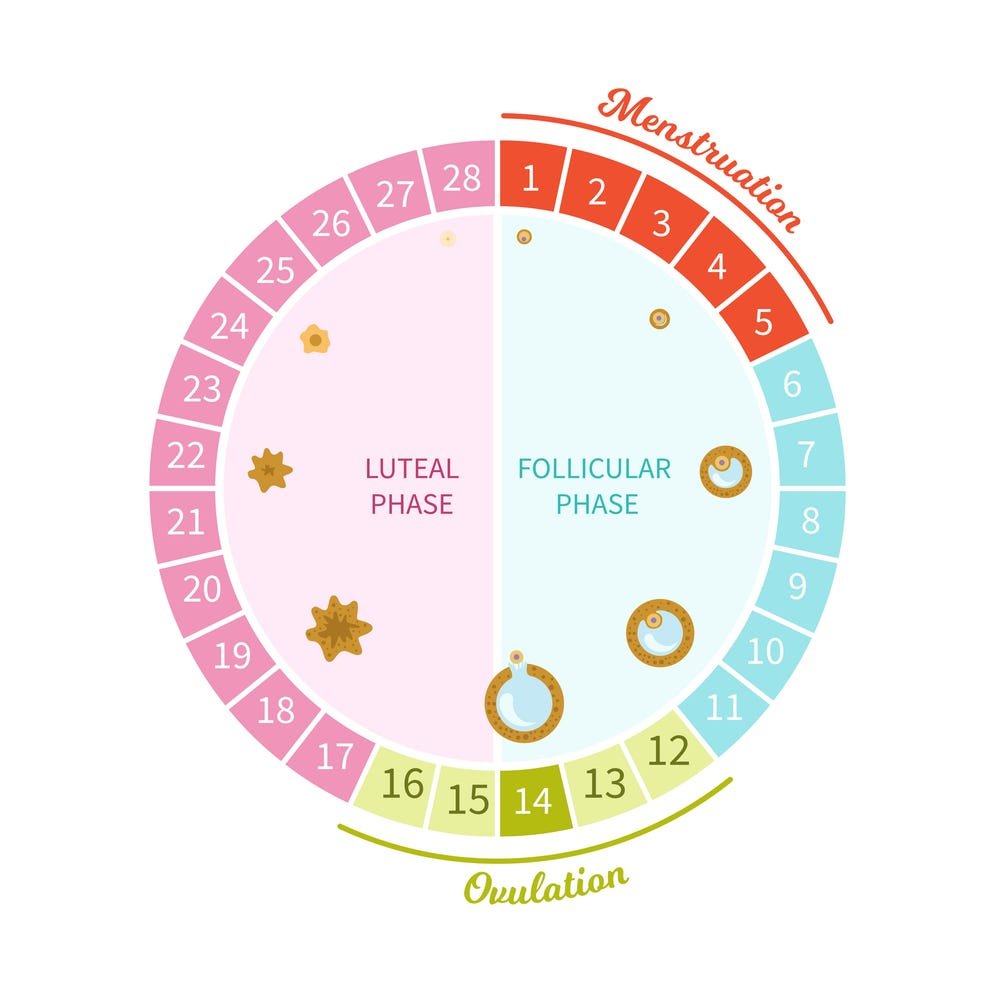How understanding hormones can empower your mental health
Written by Kirsty Harrison
What if we started to work with our hormones rather than against them?
Or learnt to live in alignment with them rather than them running the show?
Are our bodies trying to slow us down at certain times of the month?
Are we, by ignoring our hormones, making our lives so much harder?
Would learning to live in alignment with our hormones improve our mental health? I think it would.
As we know the menstrual cycle has four phases:
The menstrual phase: This is our bleed; some people refer to it as our winter. This is the first day of a new cycle. We may want to retreat, rest and nourish our bodies. During this time, we may want to change up our exercise to be more restorative and peaceful, and we may not want to be arranging for important work meetings. Or starting a big project or arranging for all the family to come and stay. In winter we may want to hibernate more, and this menstrual phase is similar.
“this is our bleed; some people refer to it as our winter.”
Next is the follicular phase:
Our bleed has finished and our oestrogen is rising. Oestrogen brings with it feelings of energy, that feeling of invincibility, that ‘can do’ feeling. This is when to book in the big meetings, the big projects, the things that really need doing. Your exercise regime may ramp up a level, and you may want lighter foods that feel in alignment with your inner spring. When making plans in this phase it is important to be aware of how you may feel in later phases.
The ovulation phase is our shortest phase – this is your summer! When you ovulate, your body produces progesterone. Progesterone is our calming hormone; it promotes sleep and calms our nervous system. This is a short but mighty phase as it dictates the rest of our cycle.
The final phase is the luteal phase which is your autumn. Your oestrogen levels start to decline, you may want to retreat a little at this time and you may feel like taking a step back from life. You may still have a little energy but not as much as during your follicular phase. Your exercise regime may slow down a little; you may not fancy being around big groups of people and you may want to start increasing those nourishing foods.
“you may want to retreat a little at this time and you may feel like taking a step back from life.”
I don’t know what you were taught about your menstrual cycle at school, but I was basically taught that if I even so much as looked at a boy, I would fall pregnant. Now, having worked in Women’s Health and having worked in fertility for several years I know that this is very much not the case. Falling pregnant for some is incredibly hard and often, much like understanding our overall health, this sometimes comes down to not truly understanding our menstrual cycle, not being aware of red flags and not really understanding how our hormones affect our everyday lives.
The first step to start living in alignment with your hormones, is to get the basics right. Good nutrition is a good place to start. Focus on eating a rainbow of vegetables and fruit, ensure are eating your complex carbohydrates, get your good fats in as these enable the fat-soluble nutrients such as Vitamins A, E, D and K to be absorbed. Ensure you are eating adequate protein sources with each meal. It can be easy to over complicate nutrition but really focussing on these fundamentals is the most important thing. A good sleep pattern making sure you are going for a poo daily also support good hormone health.
“When your hormones are functioning correctly, you can then lean into working with them.”
When your hormones are functioning correctly, you can then lean into working with them. Using them to your advantage. You can arrange your difficult meetings when you are in your follicular phase, you can work on sole projects during your luteal phase. You can arrange dates for during ovulation, you can make no plans during your bleed. Imagine how effective you could be if you utilised the power of your hormones – they are after all such an important part of who we really are!
FIND OUT MORE…
We asked Kirsty what her top resources are for extra insight into understanding your hormones and mental health:
BOOK: You can have a better Period by Le'Nise Brothers is great for understanding your cycle and hormones.
PODCAST: I am a big fan of Glennon Doyle's podcast - We Can do Hard Things
APP: I track my cycle with Cycles - the paid version is fairly comprehensive. I would advise also keeping a written diary of symptoms as this is a great way of noticing any changes.
Contributed by Kirsty Harrison Nutrition
Kirsty is a Nutritional Therapist specialising in Women’s Health and Fertility.




